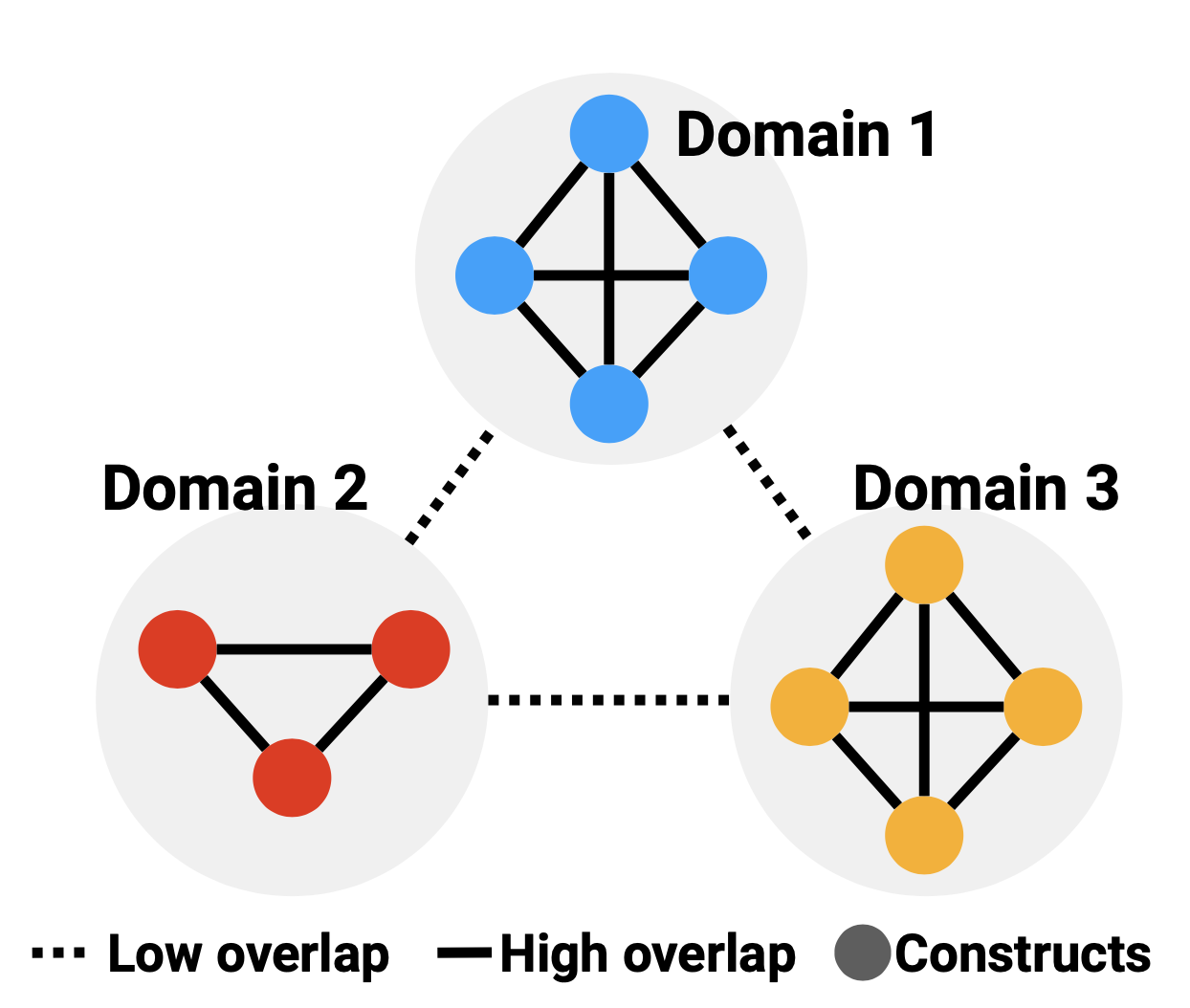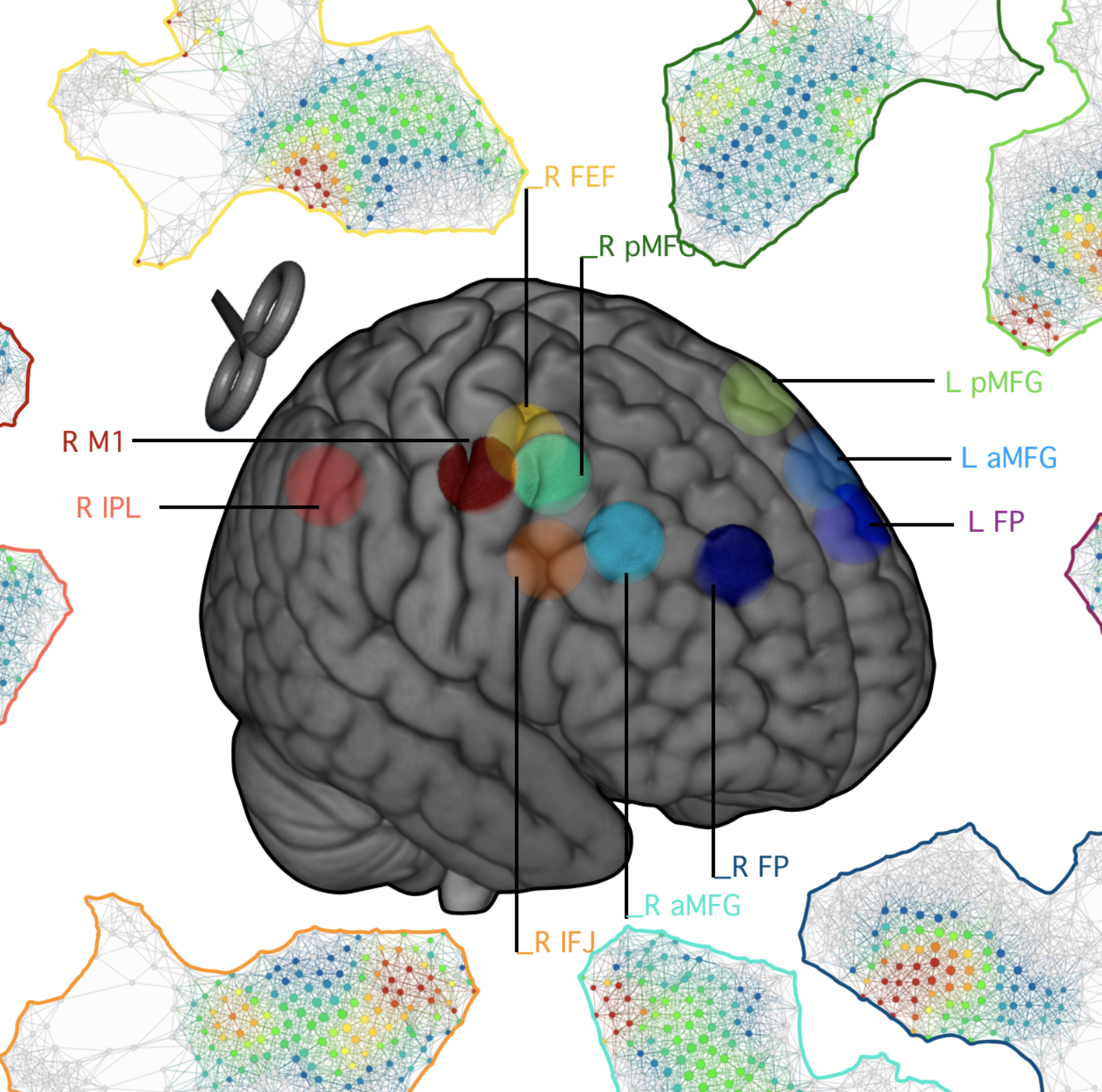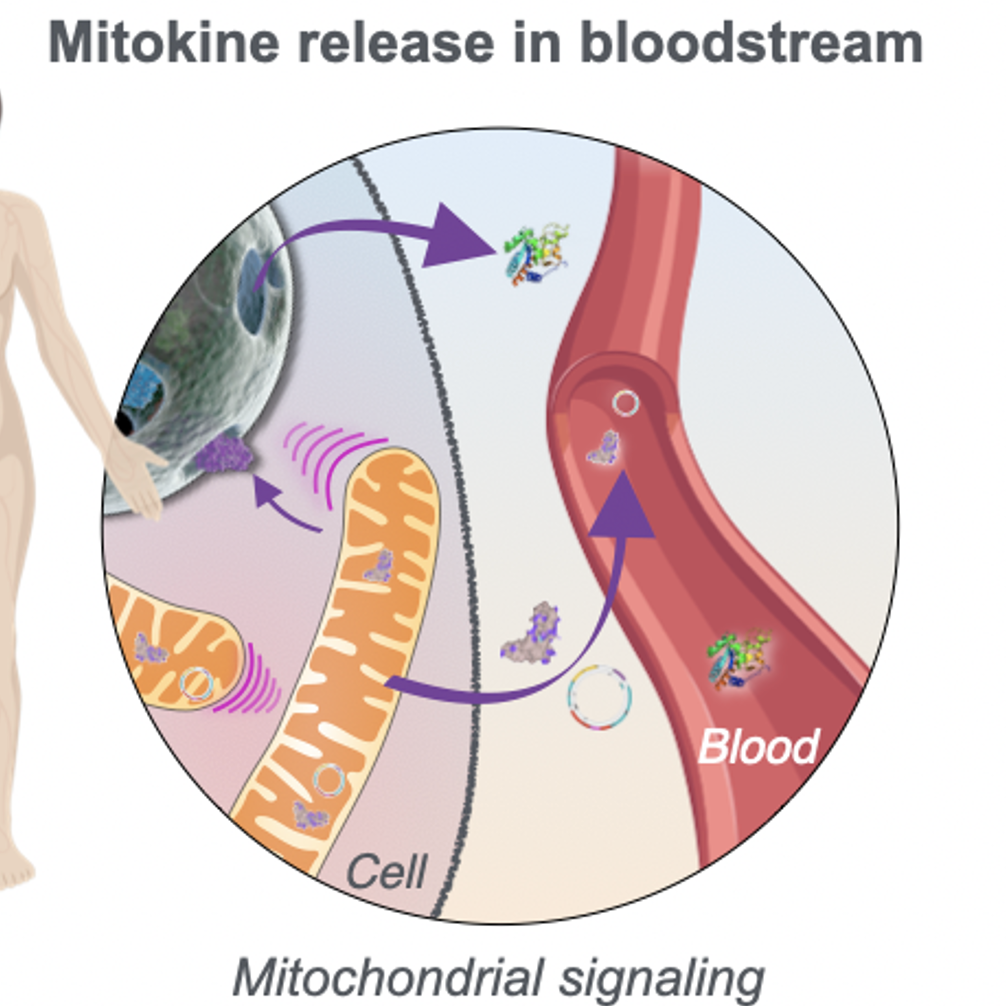Current Projects
Goals: We are working towards modeling the entire landscape of brain's dynamical organization at an individual level. This modeled landscape could then be used as a “lens” towards (a) characterizing (and stratifying) psychiatric illness and (b) generating biologically grounded mechanistic insights regarding how neural processes interact during ongoing cognition to give rise to different dynamical landscapes in patient populations.
Funded by: New Innovator Award (DP2), NIMH
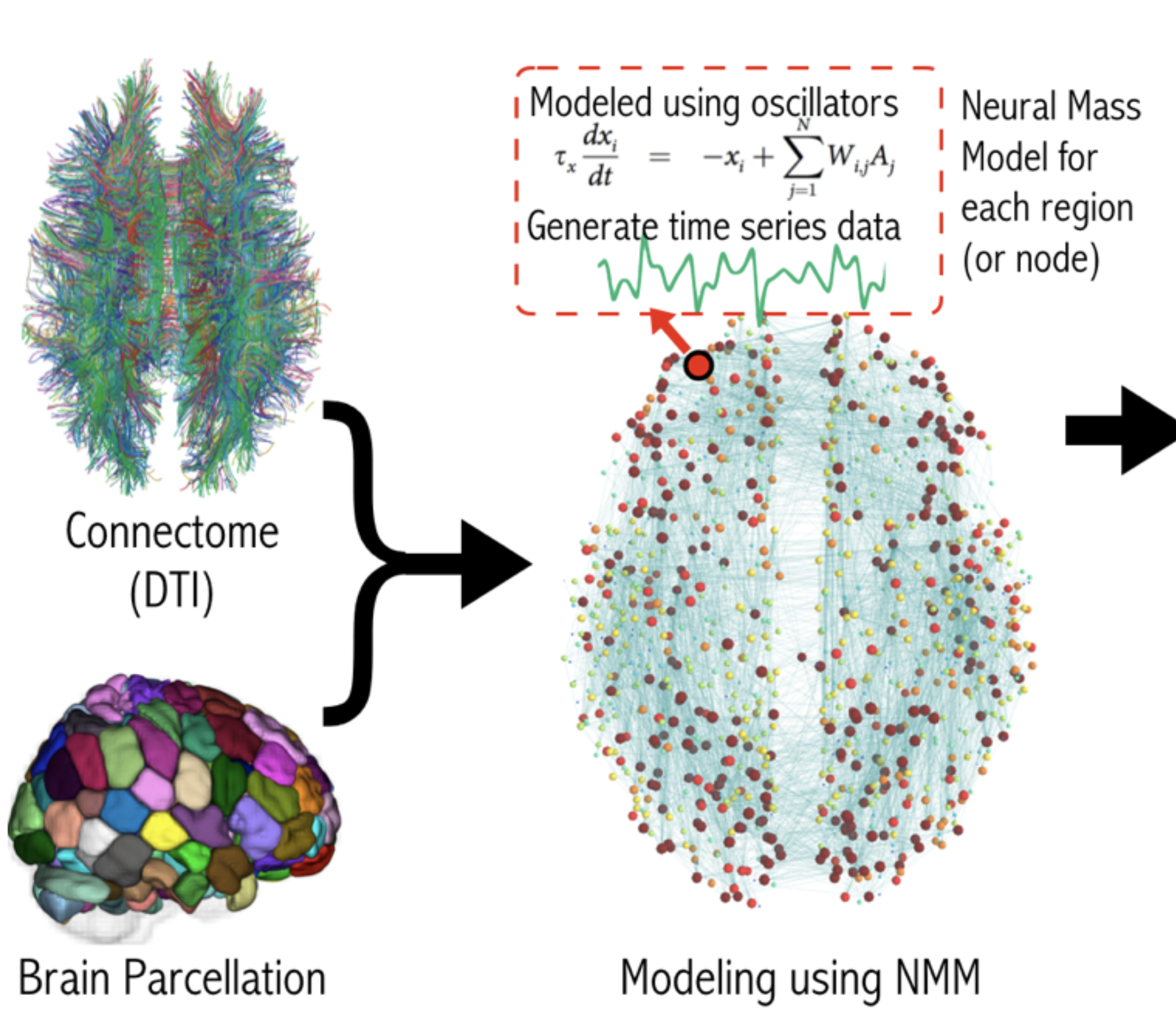
Goals: Here, we set out to perform a cross-disciplinary investigation, across the three domains of neuroscience, design interaction, and speech analysis, to quantify the reflection processes and link them to individual differences in creativity and design thinking both at the individual and team levels.
Funded by: HPDTRP, Stanford

Past Projects
Goals: We aimed to study the neural basis of applied creativity in business by examining differences in brain structure and function of entrepreneurs as compared to that of matched (on age, gender, and socio-economic status) administrators/managers. Our work would have a broad impact on fields of academia and industry. The knowledge generated from this project could provide a cornerstone in how we train (or design) the next generation of entrepreneurs and mangers.
Funded by: HPDTRP, Stanford
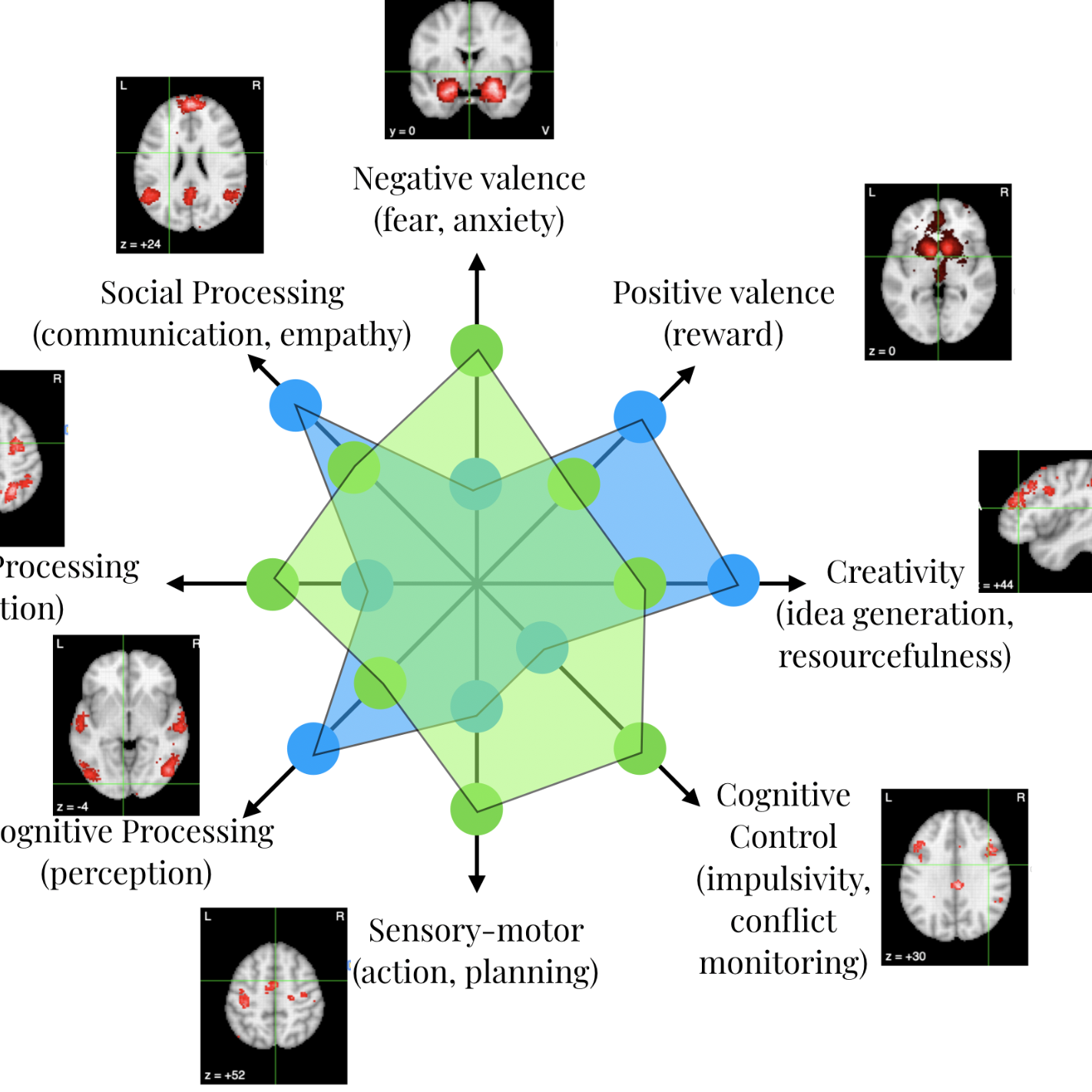
Goals: Here, we collected multimodal (electroencephalogram (EEG) and fMRI) sub-second neuroimaging data while participants engage in a Continuous Multitask Experimental (CME) paradigm. Using behavioral performance at each trial and trial-by-trial time-locked variation in FC, the CME paradigm will allow us to directly examine the role of FC dynamics in ongoing adaptive cognition, thereby leading the way for developing clinically meaningful biomarkers.
Funded by: Department Innovator Award, Stanford
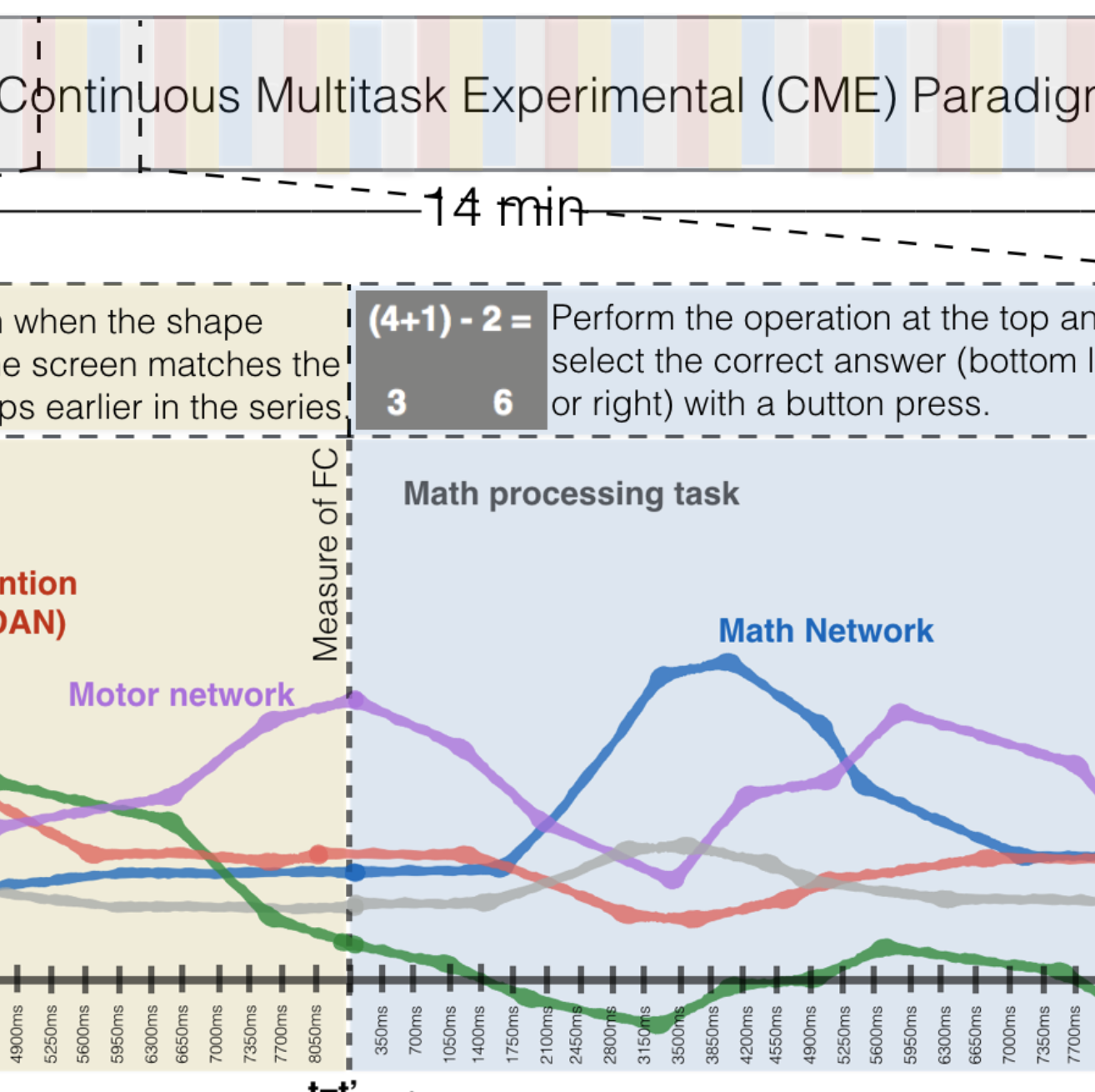
Goals: Despite the burgeoning literature showing group-based differences in brain activity at rest, its specific association to any particular disorder is still lacking, making it an ineffective biomarker. We also lack applicable translation of group-based results to personalized clinical care. The proposed research will be particularly focused on developing individualized metrics to capture and computationally model the dynamics of brain activity at rest, so that specific biomarkers can be developed for early detection and treatment of mental illness.
Funded by: NIMH (K99/R00)
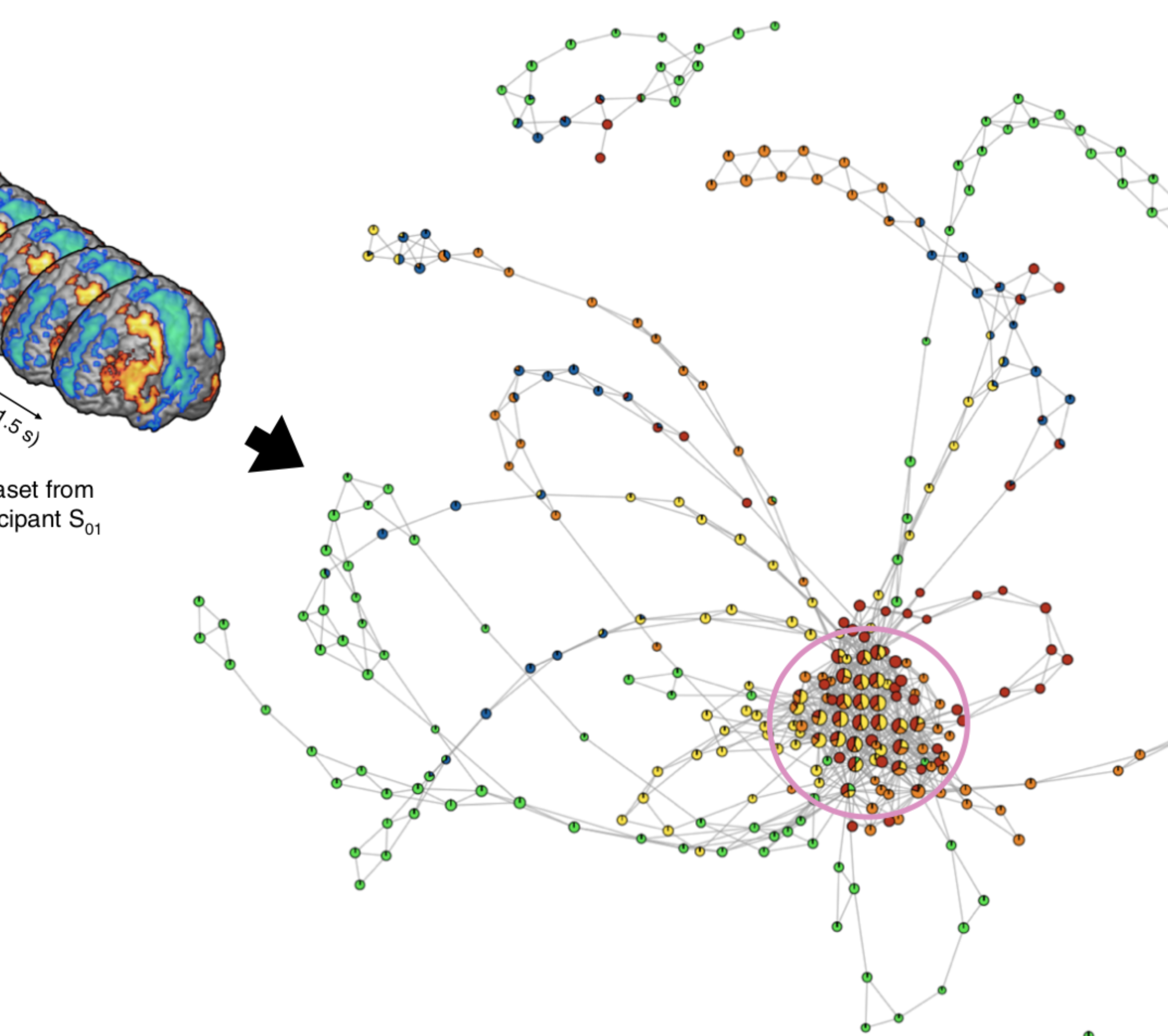
Goals: We aimed at understanding how creative brain develops using functional neuroimaging (fNIRS). Using a cohort-sequential (semi-longitudinal) study of children enrolled in 3rd and 4th grades, we examined the neural correlates of the widely recognized decline in creative capacity in children as they enter 4th grade.
Funded by: MCHRI, Stanford
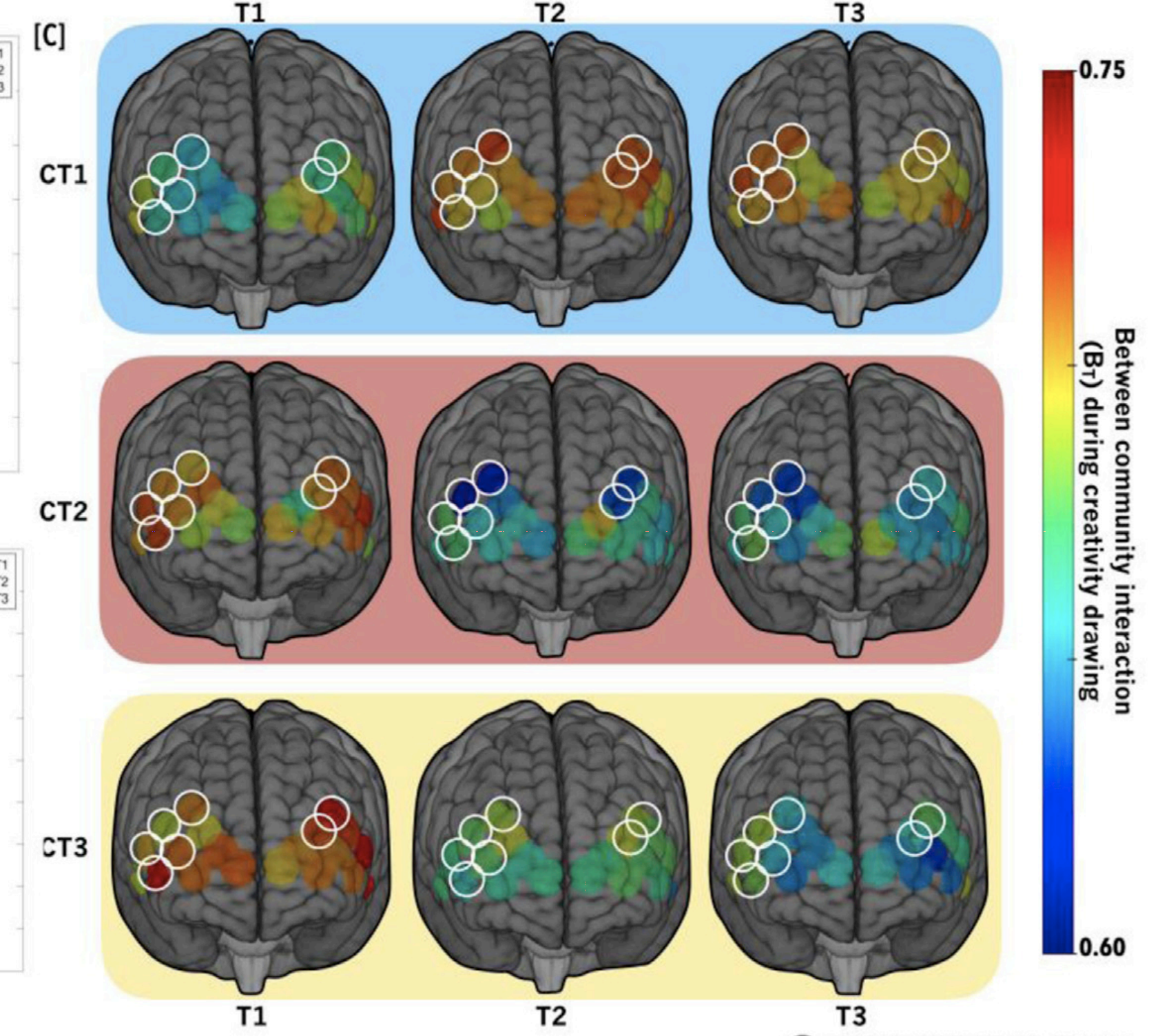
Goals: Creativity is widely recognized as an essential skill for entrepreneurial success and adaptation to daily-life demands. However, we know little about the neural changes associated with creative capacity enhancement. Here, we studied i) whether creativity can be enhanced using targetted training and ii) the associated changes in brain dynamics.
Funded by: HPDTRP, Stanford
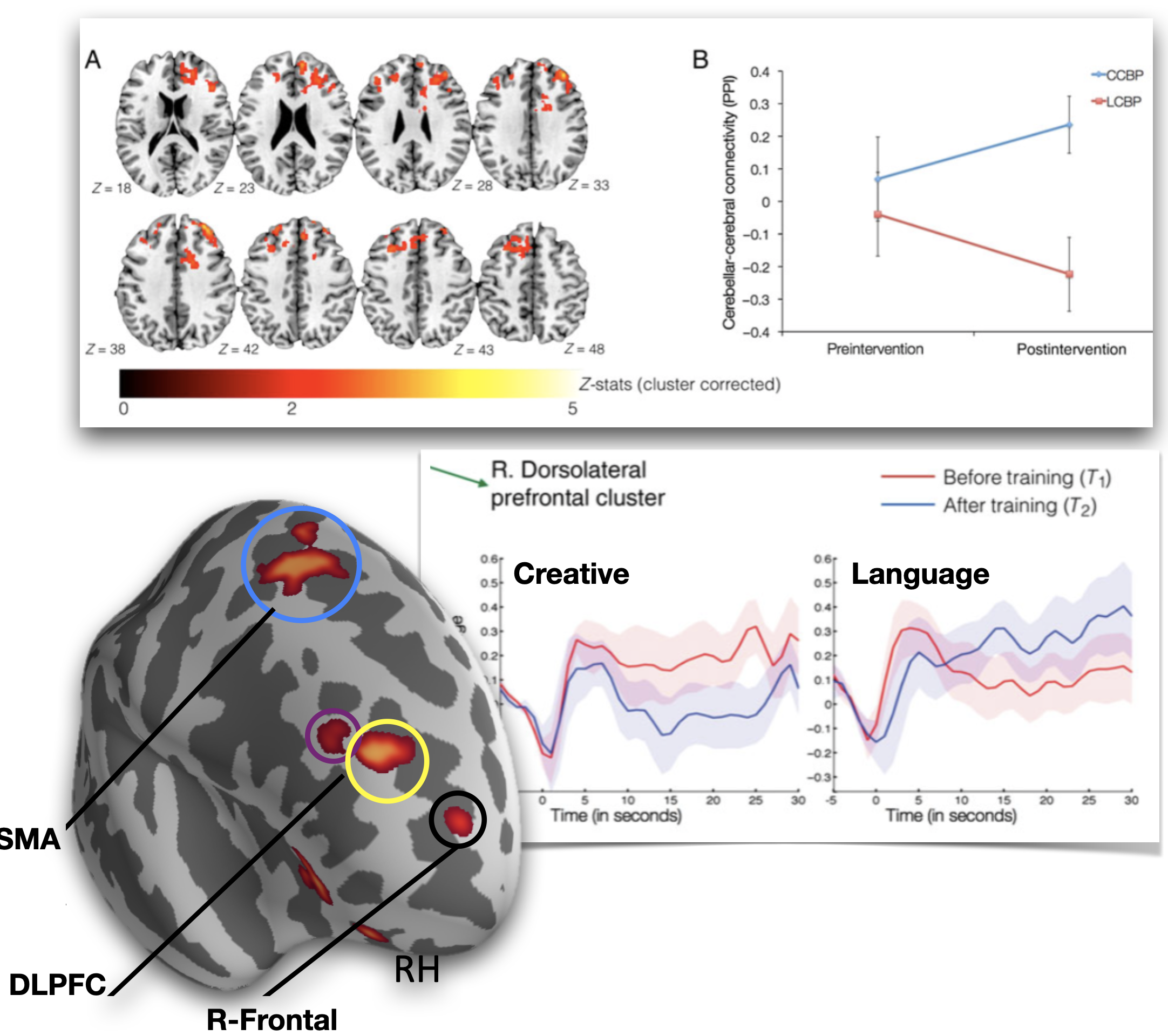
Goals: In this project we aimed to characterize and computationally model the longitudinal changes in neural activity (EEG) associated with intensive meditation training (~6 hrs/d for 3 months). This project was done as a part of a larger project (the Shamatha project) whose goal was to study the effects of intensive meditation practice on attention, emotional regulation, and the associated neural correlates.
Funded by: Mind & Life Institute (Varela Award)

